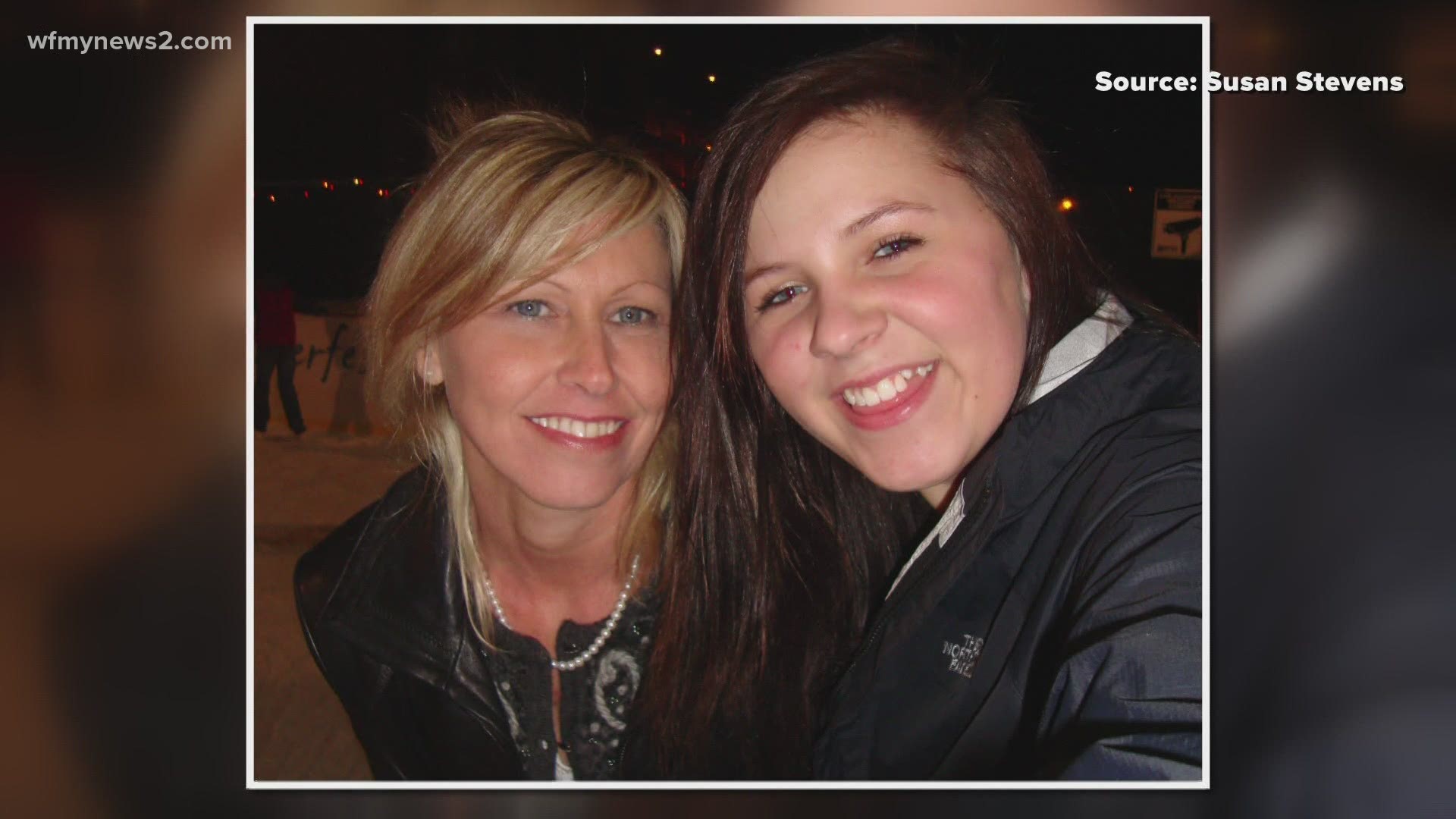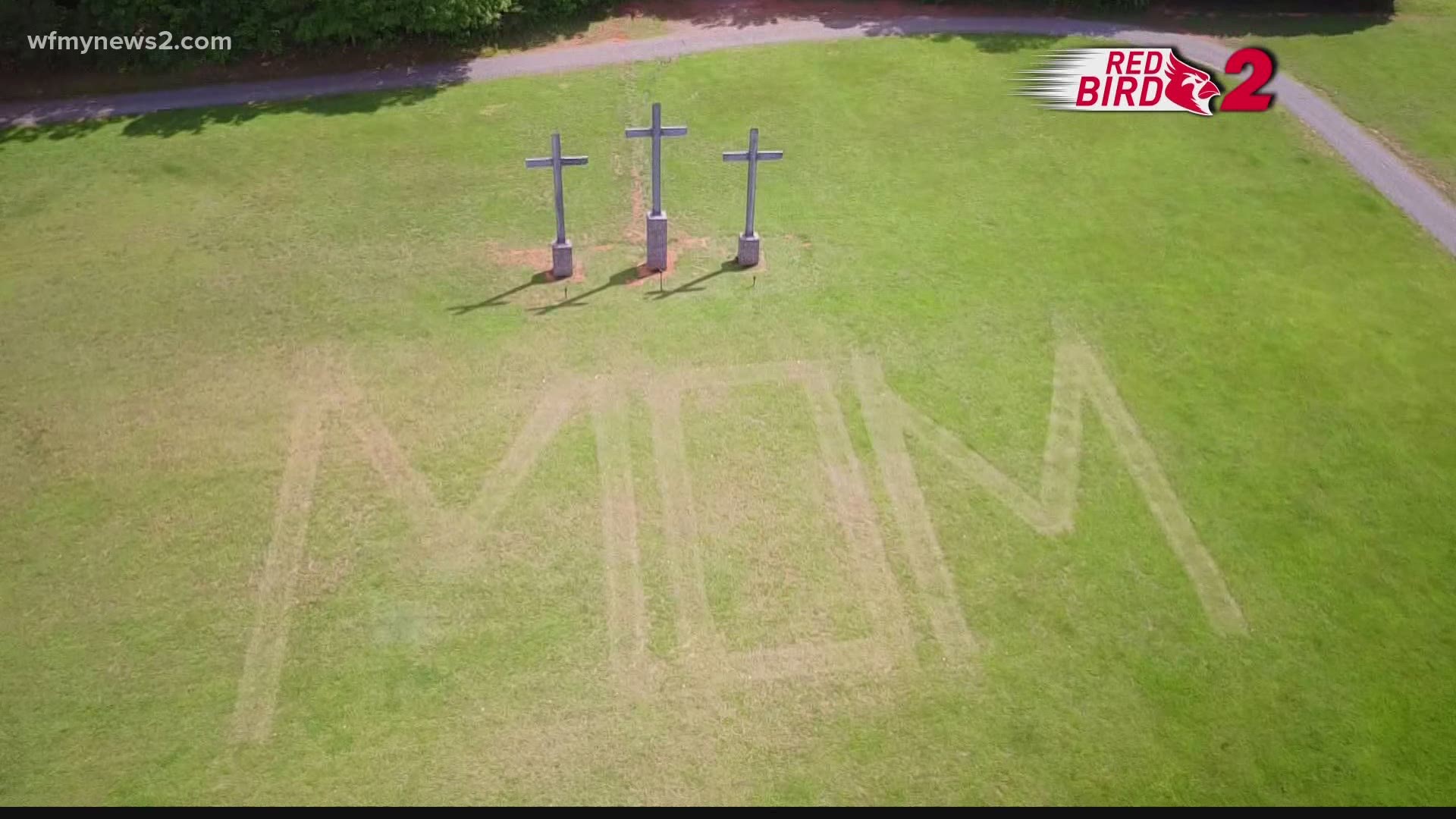WINSTON-SALEM, N.C. — For months, we've all paid special attention to a single crisis - the coronavirus pandemic. But before the first positive tests and deaths, our country was battling something else: The opioid crisis.
It didn't go away. The CDC reports that overdoses are up since the start of the COVID-19 pandemic, and the number keeps climbing.
When Susan Stevens hears these statistics - she doesn't just see a number. She sees the loved ones - families, mothers, father - grieving for the person they've lost. She knows this grief all too well.
"What could be more traumatic than a mother losing her child? There is nothing," she said.
As Mother's Day approaches, she remembers her daughter, Toria - and how all year round, she would surprise her and make her feel special.
"She would give me gifts and write me sweet notes. She was much better at communicating than I was," Steven said.
Toria died from an overdose in 2018. She'd been taking opioids for years, to numb the pain from an assault. Stevens recalls her daughter's constant struggle.
"There was a day that she came up to me and she said, Mom...I want to die. And I just looked at her and I couldn’t believe that she was saying that. I said, what do you mean you want to die? She said, I’m not suicidal, but she said, I struggle every day, and I know that there’s a God and I know that when I die, I won’t hurt anymore."
When she died, Susan remembers vividly - she didn't feel the sharp, sudden loss.
"You start suffering long before the overdose, so just that day - it just doesn't snap and you start grieving. You've been doing it a long time," she said, "I didn't even realize that that was a thing - to grieve while a child is alive."
That kind of complicated grief - from addiction and overdose - is now her focus as a student at the Wake Forest School of Medicine. In addition to the normal elements of grief, like anger, depression and acceptance, with addiction, there's stigma, isolation, and guilt.
"A lot of parents have a moment where they think - I can’t do it anymore. You’re on your own, and you’re making these choices, and I have no control, I can’t do anything about it and they have to save themselves. There’s so much guilt - was there one more, had I given them one more chance could I have saved them?
"The moms can start healing when you start forgiving yourself, and understanding that the cards are stacked against you. We try to save them and we love them but we can’t do it for them."
Susan will graduate from the master's program later this month and will focus on her non-profit, Teardrops while continuing her research - helping the growing number of others like her find a way to process this kind of grief.
"If we come together and come out of the shadows, we can build each other up and help each other grow and heal, and rejoice and live again."
If you or someone you know is struggling with drug addiction you can get help by calling the National Drug Helpline at (844) 289-0879 or by visiting the National Drug Helpline.



